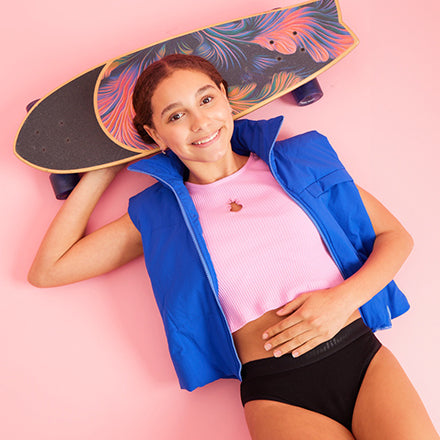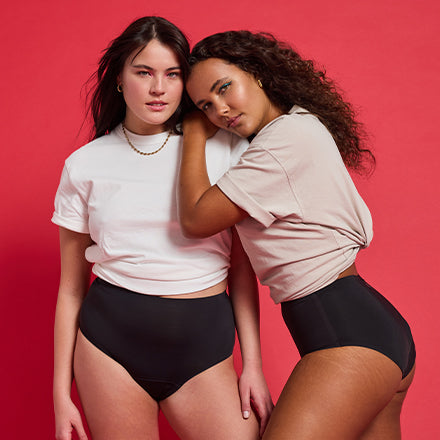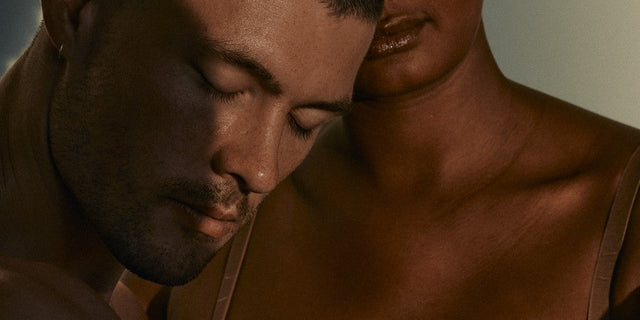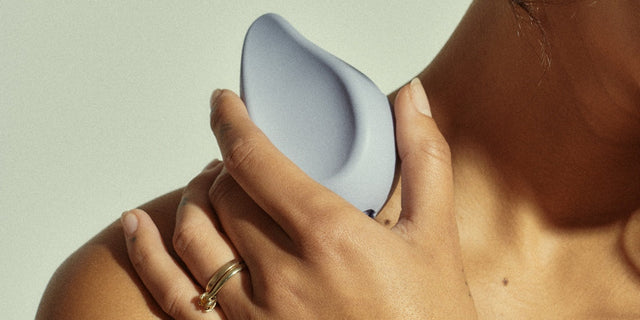‘The first time I became a mother, the relationship I had with my body was completely turned upside down. I felt like my body was disloyal because it wasn’t doing what I wanted it to do. The changes, so many changes: soft belly, huge nipples, stretch marks, leaking breasts, tired beyond belief...and so, so sore. I wish I had known that this was all OK and normal, that it was talked about more, instead of the narrative focusing on bodies ‘bouncing back’ and the unreal concept of being a ‘yummy mummy’.’
Taryn Brumfitt is the founder of the Body Image Movement and the filmmaker behind the groundbreaking Embrace documentary.
Today, she’s a passionate advocate for ending the global ‘body-hating epidemic’, and promoting positive physical, mental, emotional health and body image, celebrating diversity in shape, size, ethnicity and ability, and combating toxic media messaging in advertising.
But that wasn’t always the case.
After falling out of love with her body post-babies, Taryn considered cosmetic surgery, then chose bodybuilding instead, but discovered having her super-fit body ‘judged’ didn’t make her feel any better about herself; but throwing out the scales and embracing her body for what it could do did.
We chatted to Taryn about her personal postpartum experience...
How would you describe your postpartum journey?
My postpartum journey was enlightening, overwhelming, surprising and joyful. It was also a dichotomy between an overwhelming sense of pride at what my body had done, and some shame and embarrassment for how it looked.
There were so many unexpected things. The darkness of my stretch marks and my nipples, my boobs, how my stomach that had been so big and beautiful and full of baby just became this jelly belly mess. I wish I’d known in advance how much my body was going to change, how sore it was going to be for days...and weeks afterwards.
I think the hardest part was just the tiredness. Before I had kids, anything less than eight hours’ sleep a night and I was a mess, so I really struggled with not getting enough sleep and feeling like a zombie on those early days, even though I was fortunate to have plenty of support – my ex-husband, my parents, my sister and my friends.
As for the most positive part of postpartum, for me it was just those quiet moments between me and whatever baby it was – I had three in three-and-a-half years – but those quiet middle of the night moments when the baby’s feeding and the house is quiet and there’s nothing else to do except just be, with your baby. Those moments were really lovely.

How does the media and social media portray postpartum – and how did that compare with your reality?
When I had my babies there were less companies like Modibodi doing a great job at normalising bodies, and the experiences women have. On the whole, I still think the media portrays having babies, and the postpartum experience, as something that’s all rainbows and unicorns and butterflies, but the reality is yes, it’s beautiful having a baby and there’s nothing more overwhelming or breathtaking you’ll do in your life, but you’re also just so, so tired.
That’s why it was important for me to be involved in the Embodied: Postpartum Unfiltered campaign.
I love to dispel the myths of the perfect life, perfect kids, perfect pregnancy, perfect body, that’s what I’m here to do - to help women feel better about themselves, their bodies and their lives.
One of my favourite quotes is by Steven Furtick and it says, ‘don’t compare your behind the scenes with everyone else’s highlight reel’ and that’s why I want to be part of this project, because it makes people feel better about themselves and their lives, when we tell the whole truth – not just the glossy pretty bits, but the really ugly stuff that’s in your basement. I think it’s important to share ALL the wobbly bits.
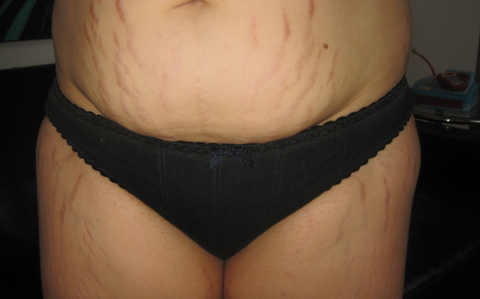
Do you have any advice for pregnant mums-to-be and their partners about the postpartum stage?
Just lower the bar for anything and everything, bunker down, don’t try and go out and do, just be with your baby and accept help. When someone says, ‘I’ll cook you a meal’, say yes, and tell them what you want them to cook. Also, just really look after each other and be there for each other, knowing it’s a stressful time and a huge adjustment.
What do you think about our reluctance to publicly discuss normal bodily functions, and stages like postpartum?
The hypocrisy makes me furious! For some reason it’s ok to talk about harmful diet products or the next weight-loss craze; but talking openly about natural bodily functions is somehow frowned upon – it doesn’t make sense. We just have to keep chipping away at the ‘old ways’ of thinking, and eventually the media will catch up. It’s time to stop shaming our bodies and start celebrating how awesome they are!
The final word
If we want to change the narrative on body image, we just start by role-modelling positive body image behaviour in front of our children from the very beginning. Show your children you’re comfortable in your skin by moving your body for joy – not punishment – and eating to fuel your body rather than dieting. Never speak poorly about your body in front of your child, and never judge or comment on another person’s body.
The best thing you can do for your child is teach them that ‘Your body is not an ornament; it is the vehicle to your dreams’.



